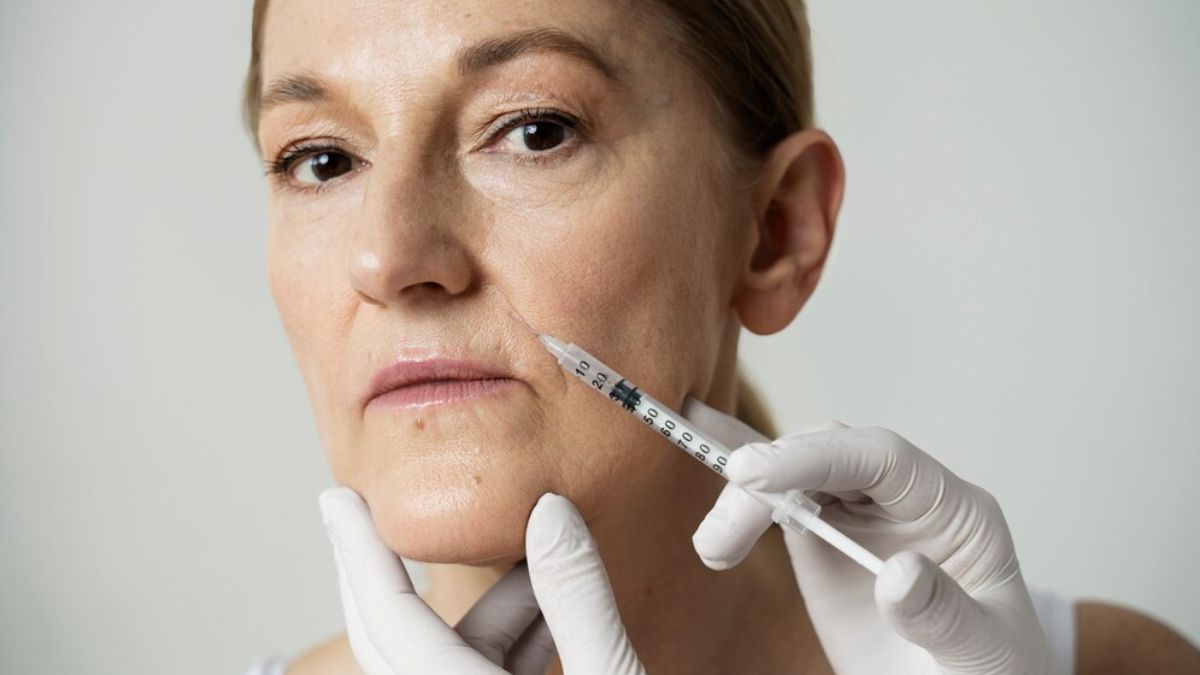
Botox is a popular cosmetic treatment that uses botulinum toxin to temporarily relax muscles and smooth wrinkles. While it's generally considered safe, some lingering myths surround its use.
One of the most common concerns is a possible link to cancer. But is there any truth to this? To find out, the Onlymyhealth team spoke to Dr Debraj Shome, Senior Cosmetic Surgeon & Director, The Esthetic Clinics.
Table of Content:-
Fact Vs Fiction: Does Botulinum Toxin Cause Cancer?
Botox is a type of drug that is made from a toxin called Botulinum Toxin produced by the bacterium Clostridium botulinum. This bacterium is often found in water and soil, said Dr Shome. He said, “It works by temporarily paralysing muscles, thus reducing the appearance of wrinkles. It is commonly used for cosmetic procedures like forehead lines treatment, brow lift, lip augmentation, gummy smile correction treatment, jawline slimming, and nasal lines to enhance your physical features.”
Explaining how Botox works, Dr Shome said, “When Botox is injected in the muscles, it blocks nerve signals, preventing them from contracting. Normally nerves release a type of chemical called acetylcholine to promote muscle contraction. However, Botox significantly prevents the release of acetylcholine, which stops the muscle from contracting. When muscles are unable to contract, they tend to relax and smoothen.”

Botulinum toxin has been the subject of controversy regarding its alleged association with cancer. This is because botulinum toxin is a potent neurotoxin. According to the Centre for Disease Control and Prevention, in high doses, this toxin can cause botulism, a serious illness. It's understandable why some might wonder if smaller doses used in Botox could have a cancerous effect.
“There’s a common myth that Botox is a carcinogen in nature, meaning it can cause cancer. The idea that Botox can lead to cancer, lacks scientific evidence. Botox has been used for over a decade and has been studied extensively by various experts and researchers. There is no scientific evidence to prove the link between Botox and cancer.” said Dr Shome.
What Does Scientific Evidence Say About Botulinum Toxin?
“Botox is often derived from the toxin called botulinum, but in its medical form which is highly purified and safe to use on skin without causing severe complications. It is used in very small and controlled doses which can hardly cause any systematic toxicity to the skin,” reassured Dr Shome.
He added, “The effects of Botox stay in the body for a few months only which means that it does not stay in the body for a longer duration. Side effects caused due to Botox are generally mild and temporary such as swelling, and bruising at the injected area which again has no link with cancer.”
Also Read: Thinking of Getting Facial Fillers? Doctor Suggests 7 Things to Consider Before You Decide

If you are wondering what these scientific evidences are, here are some research that delves into this:
- Botulinum toxin has undergone rigorous evaluation by regulatory agencies such as the United States Food and Drug Administration and the European Medicines Agency. These agencies have approved botulinum toxin for cosmetic and medical use based on its safety profile and efficacy.
- Leading medical professionals and organisations, including the American Academy of Dermatology and the American Society of Plastic Surgeons, affirm the safety of botulinum toxin when used as directed. Their consensus is supported by a wealth of scientific data and clinical experience.
- Longitudinal studies assessing the safety of botulinum toxin over extended periods have found no increased risk of cancer among individuals receiving regular injections. These findings further dispel concerns about botulinum toxin-induced carcinogenesis.
Looking at the findings of extensive research, the main logic behind the safety of botulinum toxin is two-pronged:
- Dosage: Botulinum toxin is used in tiny, precisely measured amounts that target specific muscles. These doses are nowhere near enough to cause harm.
- Localised Effect: Botulinum toxin works by blocking nerve signals at the injection site. It doesn't circulate throughout the body, so it can't affect distant cells or DNA, which is crucial for cancer development.
Also Read: Botox vs Fillers: Know The Difference Between Two Beauty Treatments
Dr Shome concluded that the notion that botulinum toxin causes cancer is a myth unsupported by scientific evidence. Patients can safely pursue botulinum toxin treatments for cosmetic or medical purposes when administered by trained professionals. Consulting with a qualified healthcare provider can address any concerns and ensure informed decision-making.
Also watch this video
How we keep this article up to date:
We work with experts and keep a close eye on the latest in health and wellness. Whenever there is a new research or helpful information, we update our articles with accurate and useful advice.
Current Version